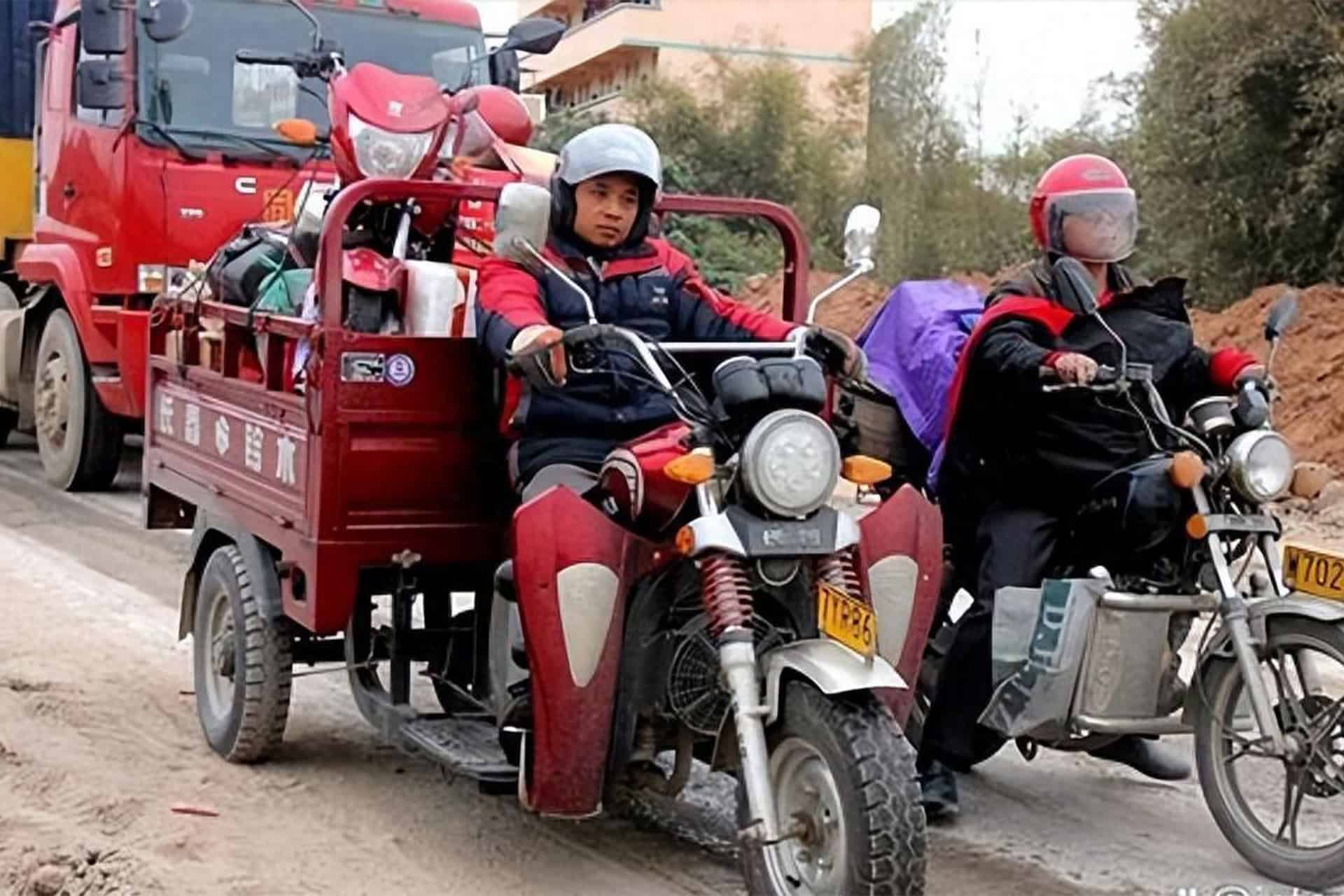Tricycles are cheap, easy to use, and super versatile—and that’s why they’re everywhere, helping people get work done across the globe. You’ll spot them moving goods, aiding farmers, speeding up construction, and even keeping cities clean. Let’s break down all the ways they pitch in.
Moving Goods: Logistics & Freight
Tricycles are total MVPs when it comes to hauling stuff—especially in tight, busy spots.
In Markets: If you’ve wandered a crowded market or big wholesale center, you’ve definitely seen tricycles hard at work. They carry fresh fruit, meat, boxed goods—you name it. Their open backs make loading and unloading a breeze, and since they’re small, they zip down narrow paths and squeeze through crowded areas that bigger carts can’t touch.
For Small Businesses: Factories, warehouses, and local shops love tricycles too. They shuttle raw materials, half-finished products, or even the final items around. The best part? They navigate tight spaces—think between warehouse shelves or behind small shops—where trucks or large carts would get stuck.
Farming & Rural Areas
Out in the countryside, tricycles are a farmer’s go-to helper.
Carrying Farm Supplies: Farmers use them to move fertilizer, seeds, bug spray, and freshly picked crops. They glide easily between fields, storage sheds, and crop processing spots—no fancy roads needed.
Powering Small Machines: Some tricycles come with a PTO (that’s a power take-off, for folks who don’t know)—a special part that hooks up to small farm tools. It can run water pumps, grinders, and more, so farmers can get more work done without extra equipment.
Construction Sites
Building sites are chaotic, but tricycles cut through the mess to keep things moving.
Hauling Building Materials: Cement, sand, bricks—tricycles carry all this and more. They’re tough enough to handle rough, uneven ground on site, and small enough to fit between floors or around half-built buildings.
Moving Heavy Tools: Workers use them to cart generators, welding machines, and other bulky tools. That means less lifting by hand, fewer tired muscles, and jobs that finish faster.
City Services: Keeping Towns Tidy
Cities rely on tricycles to handle jobs big trucks can’t—especially in tight spots.
Garbage Pickup: A lot of cities now use modified electric tricycles for trash collection, especially in narrow streets or alleys. Their small size lets them reach places big garbage trucks can’t, so no corner gets left dirty.
Street Cleaning: Cleaning crews also use tricked-out tricycles. They carry brooms, buckets, and other cleaning gear to keep streets, parks, and public areas looking neat.
Why Tricycles Are So Popular
More and more businesses are turning to tricycles—and it’s easy to see why:
They’re Cheap: Tricycles cost way less than trucks or vans, so they’re perfect for small businesses and big companies alike. No need to drop a ton of cash on a work vehicle.
They Fit Anywhere: Their small size means they zip through tight spaces, crowded streets, and narrow paths—no stress, no getting stuck.
They’re Greener: Electric tricycles don’t spew out smoke like gas-powered vehicles. That’s better for the air, especially in busy cities where pollution is a big concern.
At the end of the day, tricycles prove you don’t need something fancy to get work done. They’re simple, reliable, and ready to help—no matter the job.

